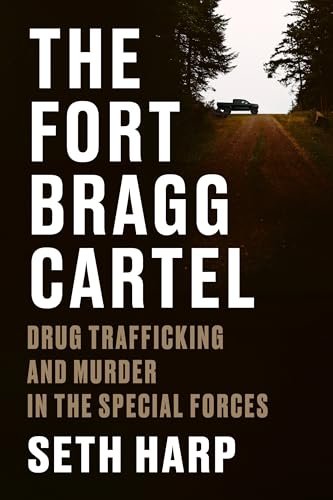
Book Review of The Fort Bragg Cartel: Drug Trafficking and Murder in t…
A Deep Dive Into the Shadows: A Review of The Fort Bragg Cartel: Drug Trafficking and Murder in the Military
I first picked up The Fort Bragg Cartel by Seth Harp with a mix of curiosity and trepidation. The title alone conjured haunting images of a world where elite military culture collides with the underbelly of drug trafficking, and I found myself wondering how this investigation would illuminate such a dark facet of American society. Harp’s reputation as a keen investigative journalist preceded him, and I was eager to see how he would navigate the treacherous waters of this narrative.
Harp’s meticulous approach to storytelling shines throughout the book, where he establishes a chilling thesis: the military’s culture, particularly within elite units like JSOC and Delta, not only cultivates a mindset geared toward violence but also normalizes this behavior when soldiers return home. The book’s rhythmic prose pulls you in, creating an almost cinematic experience that blends interviews, court filings, and the eerie echoes of military jargon. It feels both suspenseful and painfully familiar, like a slowly unraveling tapestry of systemic failure.
The spine of the narrative comprises four intertwined profiles that Harp threads together with delicate precision. William J. Lavigne II’s rise and fall from a decorated Delta operator illustrates how the adrenaline-fueled culture can lead to devastating personal consequences. The tragic fate of Enrique Roman-Martinez—a young soldier whose life ended in violence—towed a heavy emotional weight, serving as a poignant reminder of institutional failings and grief. Each character’s path offers insight into a system that feels at once distant and disturbingly familiar.
What I particularly appreciated about Harp’s writing was his ability to maintain a journalistic distance while allowing the gravity of these true stories to resonate. His short, impactful sentences created a pulse that quickened my heartbeat as I read. He effectively used operational jargon and detailed scene reconstructions without sensationalizing the violence. Instead, these elements felt like necessary labels underscoring a deeper issue, amplifying the horror without devolving into voyeurism.
One of the most striking observations Harp makes pertains to the overwhelming surge of overdoses, suicides, and domestic violence affecting military personnel and their families. He argues convincingly that this toll may rival combat losses—a statement that hit me hard. The accumulation of data, statistics, and narratives reveals an unsettling truth about the ramifications of warfare on home soil, urging readers to reflect on the consequences of long-term military engagement.
Yet, as comprehensive as Harp’s work appears, he remains candid about the limitations of his findings. The fragmented nature of military bureaucracy inevitably means that not all pieces of the puzzle are available for scrutiny, a reality that adds an extra layer of depth to the reading experience. This transparency strengthens the book’s credibility and invites readers to recognize the complexities of an already convoluted issue.
The Fort Bragg Cartel stands as a significant contribution to the body of literature exploring America’s darker truths. It’s a must-read for those who appreciate investigative journalism that intertwines true crime with deep institutional analysis. If you’re someone who can endure haunting realities and find value in well-documented inquiry over sensational storytelling, this book will resonate with you.
For me, this reading experience wasn’t just an exploration of a dark narrative. It was a call to confront uncomfortable truths about the world’s shadows, a reminder that these stories are not isolated incidents but rather echoes of a larger system. If you find yourself captivated by such intersections of power and consequence, I invite you to dive deeper with me at my substack, where I continue to explore these pressing issues.
Discover more about The Fort Bragg Cartel: Drug Trafficking and Murder in t… on GoodReads >>

